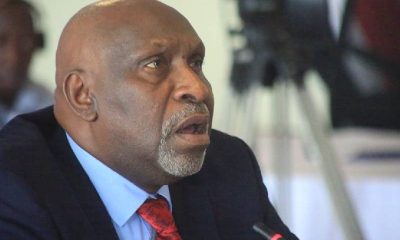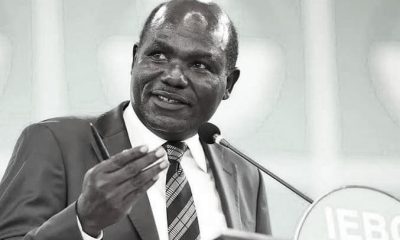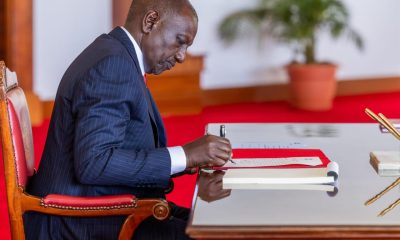News
IEBC Commissioner Candidate Stumbles on Basic Primary School Question
During the interview, panelist Adams Oloo pressed Letangule to name just three members of the Kapenguria Six.
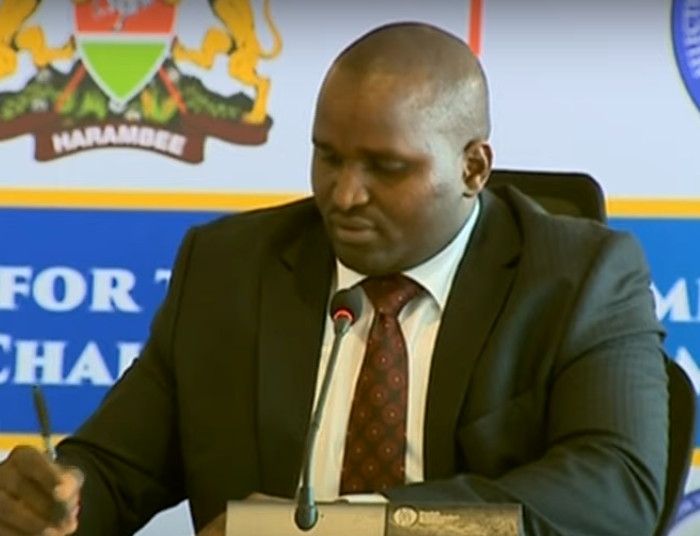
A candidate vying for a position as a member of the Independent Electoral and Boundaries Commission (IEBC) has faced scrutiny after failing to identify the “Kapenguria Six,” a group of pivotal figures in Kenya’s struggle for independence.
James Leiro Letangule struggled to recall the names during an oral interview before a selection panel on Wednesday, raising concerns about his understanding of Kenyan history.
During the interview, panelist Adams Oloo pressed Letangule to name just three members of the Kapenguria Six.
The candidate correctly identified Jomo Kenyatta but then incorrectly named Dedan Kimathi, who, while a central figure in the Mau Mau uprising, was not one of the Kapenguria Six.
He was unable to recall any further names before his allotted time expired.
The Kapenguria Six were political activists arrested by the colonial government on October 20, 1952, during the Mau Mau uprising.
Accused of attempting to overthrow the government, they were detained in Kapenguria, Northwestern Kenya, and sentenced to seven years of imprisonment with hard labor after a six-month trial.
The group consisted of Jomo Kenyatta, Ramogi Achieng Oneko, Bildad Kaggia, Kungu Karumba, Fred Kubai, and Paul Ngei. Their imprisonment became a symbol of the struggle for independence.
The incident has sparked debate about the importance of historical knowledge for individuals holding key positions in public institutions, particularly those related to governance and civic education.
Some argue that a strong understanding of national history is essential for ensuring fair and informed decision-making.
Others contend that while historical knowledge is valuable, it should not be the sole determinant of a candidate’s suitability for a technical role within the IEBC.
Letangule’s interview took place amidst a broader selection process for new IEBC members and a chairperson. The interviews began on March 27 and are expected to continue until April 24.
This incident highlights the challenges facing the selection panel as they evaluate candidates and assess their suitability for overseeing future elections in Kenya.
It raises questions about the criteria used to assess candidates and the relative weight given to different qualifications, including historical knowledge, technical expertise, and leadership skills.
The selection process is closely watched, as the integrity and credibility of the IEBC are crucial for ensuring free, fair, and credible elections.
Kenya Insights allows guest blogging, if you want to be published on Kenya’s most authoritative and accurate blog, have an expose, news TIPS, story angles, human interest stories, drop us an email on [email protected] or via Telegram
-

 Business2 weeks ago
Business2 weeks agobetPawa Empire Crumbles: Mr Eazi’s Betting Gambit Unravels Amid Partner’s Shadowy Deals
-

 Business1 week ago
Business1 week agoMinnesota Fraud, Rice Saga, Medical Equipment Deal: Why BBS Mall Owner Abdiweli Hassan is Becoming The Face of Controversial Somali Businessman in Nairobi
-

 News1 week ago
News1 week agoDCI Probes Meridian Equator Hospital After Botched Procedure That Killed a Lawyer
-

 Politics1 week ago
Politics1 week agoYour Excellency! How Ida’s New Job Title From Ruto’s Envoy Job Is Likely to Impact Luo Politics Post Raila
-

 Investigations2 weeks ago
Investigations2 weeks agoEXPOSED: SHA Officials Approve Higher Payments for Family, Friends as Poor Patients Pay Out of Pocket
-

 News1 week ago
News1 week agoKenya Stares At Health Catastrophe As US Abandons WHO, Threatens Billions In Disease Fighting Programmes
-

 Business1 day ago
Business1 day agoCooking Fuel Firm Koko Collapses After Govt Blocks Sh23bn Carbon Deal
-
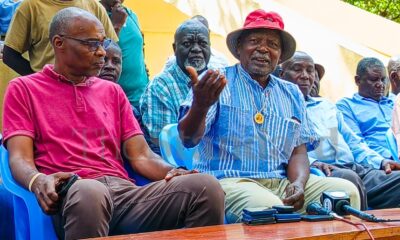
 Politics2 weeks ago
Politics2 weeks agoJaramogi Clan Tells Raila Jr, Winnie Against Disrespecting Their Uncle Oburu, Warns of Curses



